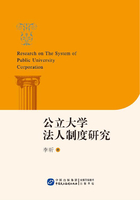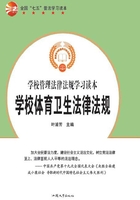Ath. Whether, in the abstract, words are to be many or few, is avery foolish question; the best form, and not the shortest, is to beapproved; nor is length at all to be regarded. Of the two forms of lawwhich have been recited, the one is not only twice as good inpractical usefulness as the other, but the case is like that of thetwo kinds of doctors, which I was just now mentioning. And yetlegislators never appear to have considered that they have twoinstruments which they might use in legislation-persuasion andforce; for in dealing with the rude and uneducated multitude, they usethe one only as far as they can; they do not mingle persuasion withcoercion, but employ force pure and simple. Moreover, there is a thirdpoint, sweet friends, which ought to be, and never is, regarded in ourexisting laws.
Cle. What is it?
Ath. A point arising out of our previous discussion, which comesinto my mind in some mysterious way. All this time, from early dawnuntil noon, have we been talking about laws in this charmingretreat: now we are going to promulgate our laws, and what haspreceded was only the prelude of them. Why do I mention this? For thisreason:-Because all discourses and vocal exercises have preludes andovertures, which are a sort of artistic beginnings intended to helpthe strain which is to be performed; lyric measures and music of everyother kind have preludes framed with wonderful care. But of thetruer and higher strain of law and politics, no one has ever yetuttered any prelude, or composed or published any, as though there wasno such thing in nature. Whereas our present discussion seems to me toimply that there is;-these double laws, of which we were speaking, arenot exactly double, but they are in two parts, the law and the preludeof the law. The arbitrary command, which was compared to thecommands of doctors, whom we described as of the meaner sort, wasthe law pure and simple; and that which preceded, and was described byour friend here as being hortatory only, was, although in fact, anexhortation, likewise analogous to the preamble of a discourse. ForI imagine that all this language of conciliation, which the legislatorhas been uttering in the preface of the law, was intended to creategoodwill in the person whom he addressed, in order that, by reasonof this good-will, he might more intelligently receive his command,that is to say, the law. And therefore, in my way of speaking, this ismore rightly described as the preamble than as the matter of thelaw. And I must further proceed to observe, that to all his laws,and to each separately, the legislator should prefix a preamble; heshould remember how great will be the difference between them,according as they have, or have not, such preambles, as in the casealready given.
Cle. The lawgiver, if he asks my opinion, will certainly legislatein the form which you advise.
Ath. I think that you are right, Cleinias, in affirming that alllaws have preambles, and that throughout the whole of this work oflegislation every single law should have a suitable preamble at thebeginning; for that which is to follow is most important, and it makesall the difference whether we clearly remember the preambles or not.
Yet we should be wrong in requiring that all laws, small and greatalike, should have preambles of the same kind, any more than all songsor speeches; although they may be natural to all, they are notalways necessary, and whether they are to be employed or not has ineach case to be left to the judgment of the speaker or the musician,or, in the present instance, of the lawgiver.
Cle. That I think is most true. And now, Stranger, without delay letus return to the argument, and, as people say in play, make a secondand better beginning, if you please, with the principles which we havebeen laying down, which we never thought of regarding as a preamblebefore, but of which we may now make a preamble, and not merelyconsider them to be chance topics of discourse. Let us acknowledge,then, that we have a preamble. About the honour of the Gods and therespect of parents, enough has been already said; and we may proceedto the topics which follow next in order, until the preamble is deemedby you to be complete; and after that you shall go through the lawsthemselves.
Ath. I understand you to mean that we have made a sufficientpreamble about Gods and demi-gods, and about parents living or dead;and now you would have us bring the rest of the subject into the lightof day?
Cle. Exactly.
Ath. After this, as is meet and for the interest of us all, I thespeaker, and you the listeners, will try to estimate all thatrelates to the souls and bodies and properties of the citizens, asregards both their occupations and arrive, as far as in us lies, atthe nature of education. These then are the topics which follow nextin order.
Cle. Very good.















